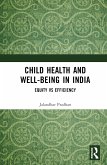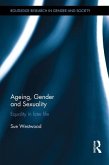This college-level handbook offers a comprehensive and accessible overview of sociological and cultural perspectives on the human body. Organized along the lines of a standard anatomical textbook delineated by body parts and processes, this volume subverts the expected content in favor of providing tools for social and cultural analysis. Students will learn about the human body in its social, cultural, and political contexts, with emphasis on multiple, contested meanings of the body, body parts, and systems. Case studies, examples, and discussion questions are both US-based and international. Advancing critical body studies, the book explicitly discusses bodies in relation to race, class, gender, sexuality, ability, age, health, geography, and citizenship status. The framing is sociological rather than biomedical, attentive to cultural meanings, institutional practices, politics, and social problems. The authors use commonly understood anatomical frames to discuss social, cultural, political, and ethical issues concerning embodiment.
Hinweis: Dieser Artikel kann nur an eine deutsche Lieferadresse ausgeliefert werden.
Hinweis: Dieser Artikel kann nur an eine deutsche Lieferadresse ausgeliefert werden.
"This highly original and exciting textbook significantly updates the sociology of the body while also offering a new style of engagement with readers from many disciplines. A great strength is its accessibility, making available complex theoretical and conceptual analyses of bodies and embodiment through vivid case studies that bring this subject alive and demonstrate its relevance to every aspect of contemporary society." - Professor Sarah Franklin, Wellcome Trust Senior Investigator and Director Reproductive Sociology Research Group (ReproSoc), University of Cambridge
"Moore and Casper have written a fantastic book. Organized around body parts and functions, the book brilliantly turns anatomy on its head, showing how the body is not stable and natural, but malleable, transformable, and always enmeshed in power relations. It is a superb contribution to the interdisciplinary literature on the body. Absolutely a must read for both scholars and students." - Jonathan Xavier Inda, University of Illinois, Urbana-Champaign, author of "Racial Prescriptions: Pharmaceuticals, Difference, and the Politics of Life"
"Fusing the scholar's pen and surgeon's scalpel. The Body exposes the intellectual innards of the most taken-for-granted unit of social life. With verve and originality, the text takes seemingly discrete objects-genes, cells, organs, and more-and carefully situates them within their layered biopolitical contexts. This is essential reading for all those who want conceptual tools to engage, challenge, and reimagine the nature/nurture binary." - Ruha Benjamin, Princeton University, author of People's Science: Bodies and Rights on the Stem Cell Frontier
"Moore and Casper have successfully taken on the project of fleshing out anatomy to reveal the social and cultural meanings that complicate and partly construct our biological understandings. The Body is firmly situated in critical body studies, read mainly through a sociological perspective but always aware of, and responsive to, the interdisciplinarity of the field. It is a valuable and engaging guide for students and teachers alike." - Margrit Shildrick, Professor of Gender and Knowledge Production, Linköping University
The Body: Social and Cultural Dissections is a work of subtle genius that teaches us to rethink the very things we think we know the most about: our bodies and ourselves. Brilliantly organized and thoughtfully written, the book concisely anatomizes how bodies are shaped, deployed, and politicized into symbols of deeper meaning. This is the rare book that synthesizes theory, history, and volumes of information into a single, compelling narrative. The Body is required reading for students, teachers, practitioners, and anyone else who wants to learn more about the valences and implications of human existence. - Jonathan Metzl, Director, Center for Medicine, Health, and Society, Frederick B. Rentschler II Professor of Sociology, Vanderbilt University
"Moore and Casper have written a fantastic book. Organized around body parts and functions, the book brilliantly turns anatomy on its head, showing how the body is not stable and natural, but malleable, transformable, and always enmeshed in power relations. It is a superb contribution to the interdisciplinary literature on the body. Absolutely a must read for both scholars and students." - Jonathan Xavier Inda, University of Illinois, Urbana-Champaign, author of "Racial Prescriptions: Pharmaceuticals, Difference, and the Politics of Life"
"Fusing the scholar's pen and surgeon's scalpel. The Body exposes the intellectual innards of the most taken-for-granted unit of social life. With verve and originality, the text takes seemingly discrete objects-genes, cells, organs, and more-and carefully situates them within their layered biopolitical contexts. This is essential reading for all those who want conceptual tools to engage, challenge, and reimagine the nature/nurture binary." - Ruha Benjamin, Princeton University, author of People's Science: Bodies and Rights on the Stem Cell Frontier
"Moore and Casper have successfully taken on the project of fleshing out anatomy to reveal the social and cultural meanings that complicate and partly construct our biological understandings. The Body is firmly situated in critical body studies, read mainly through a sociological perspective but always aware of, and responsive to, the interdisciplinarity of the field. It is a valuable and engaging guide for students and teachers alike." - Margrit Shildrick, Professor of Gender and Knowledge Production, Linköping University
The Body: Social and Cultural Dissections is a work of subtle genius that teaches us to rethink the very things we think we know the most about: our bodies and ourselves. Brilliantly organized and thoughtfully written, the book concisely anatomizes how bodies are shaped, deployed, and politicized into symbols of deeper meaning. This is the rare book that synthesizes theory, history, and volumes of information into a single, compelling narrative. The Body is required reading for students, teachers, practitioners, and anyone else who wants to learn more about the valences and implications of human existence. - Jonathan Metzl, Director, Center for Medicine, Health, and Society, Frederick B. Rentschler II Professor of Sociology, Vanderbilt University









